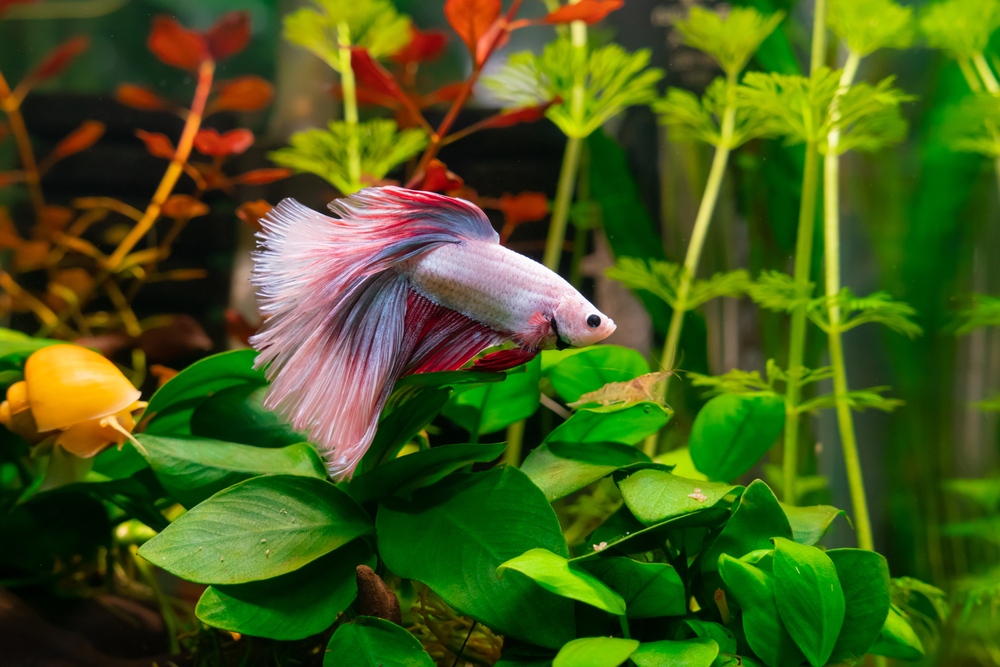Betta fish, also known as Siamese fighting fish, are popular aquarium fish known for their vibrant colors and unique personalities. As with any pet, it’s important to understand their needs and lifespan to provide the best care possible.
In this article, we’ll explore how long do bettas live and the factors that can influence their longevity.
On average, betta fish live for two to four years in captivity. However, with proper care and attention, some bettas can live up to five years or more.
Understanding the factors that can affect their lifespan, such as water quality and diet, can help betta owners provide the best possible care for their fish.
Poor water quality, overfeeding, and inadequate tank size can all contribute to a shorter lifespan for bettas. Additionally, some bettas may be genetically predisposed to certain health issues that can impact their longevity.
By taking steps to address these factors and provide a healthy environment for their fish, betta owners can help their pets live longer, healthier lives.
Contents
Key Takeaways on How Long Do Bettas Live?
- Betta fish typically live for two to four years in captivity, but can live up to five years or more with proper care.
- Factors that can impact betta lifespan include water quality, diet, tank size, and genetics.
- By addressing these factors and providing a healthy environment for their fish, betta owners can help their pets live longer, healthier lives.
Learn more on the lifespan of our favorite aquatic friends:
Understanding Betta Fish
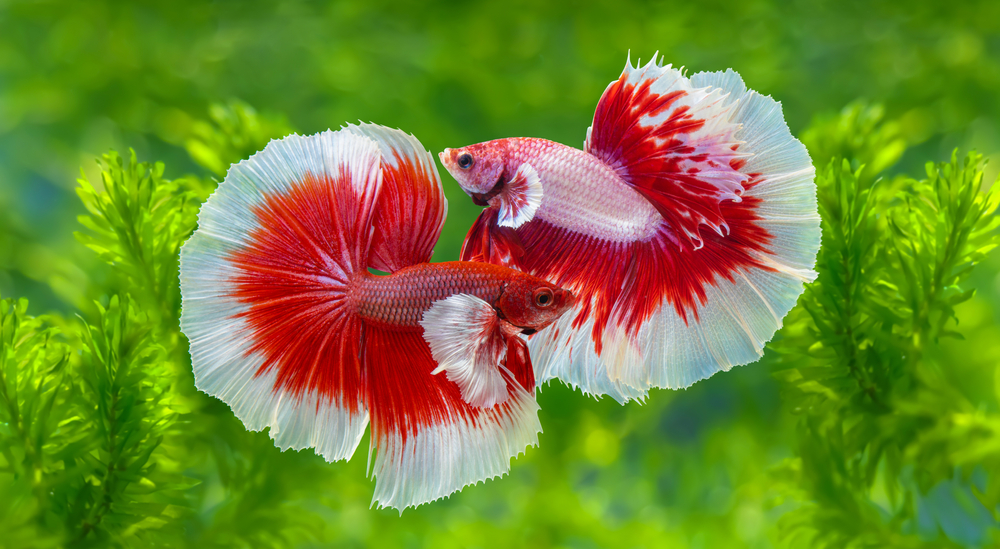
Betta fish, also known as Siamese fighting fish, are popular aquarium fish that are native to Southeast Asia. They are known for their bright colors and long fins, which make them a popular choice for hobbyists.
Male bettas are known for their vibrant colors and long, flowing fins, while female bettas are typically less colorful and have shorter fins. Wild betta fish are typically less colorful than their captive counterparts, but they still exhibit a range of colors.
When kept in captivity, betta fish can live for several years, with healthy bettas living up to 3-5 years on average. The oldest recorded betta fish lived to be 9 years old.
It’s important to note that betta fish require specific care in order to thrive. They need a clean and spacious tank, a balanced diet, and appropriate water conditions. Poor water quality and inadequate nutrition can lead to health problems and a shorter lifespan for bettas.
Average Lifespan of Betta Fish
Betta fish, also known as Siamese fighting fish, are a popular choice for aquarium enthusiasts due to their vibrant colors and unique personalities.
It is important to understand the average lifespan of betta fish in order to provide them with the proper care and ensure they live a healthy life.
On average, betta fish live between 2-3 years in captivity. However, with proper care and a healthy environment, they can live up to 5 years or more. Factors that can affect the lifespan of betta fish include genetics, diet, water quality, and overall health.
In order to ensure a healthy betta fish lifespan, it is important to provide them with a well-maintained aquarium. This includes regularly cleaning the tank and providing proper filtration to maintain water quality.
It is also important to provide a balanced diet consisting of high-quality betta fish food and occasional treats such as live or frozen foods.
In addition, providing a stress-free environment for betta fish can also contribute to a longer lifespan. This includes providing plenty of hiding places and avoiding overcrowding in the aquarium.
Factors Influencing Betta Lifespan
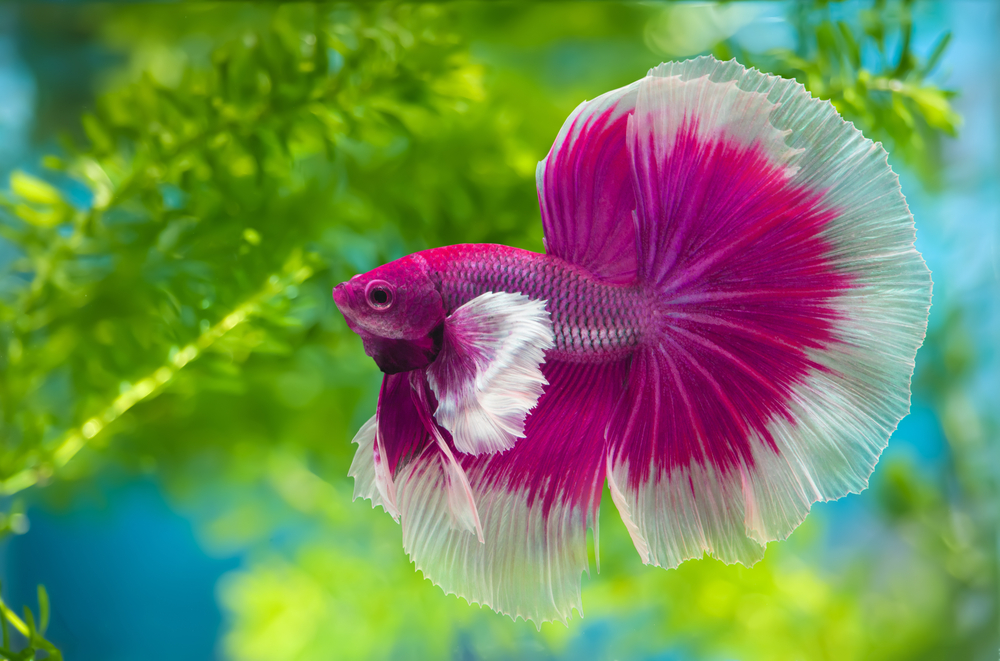
Betta fish, like any other living creature, have a limited lifespan. While there is no definitive answer to how long Betta fish live, several factors can influence their longevity.
Here are some of the most important factors that can affect a Betta’s lifespan:
1. Stress
Stress is one of the most significant factors that can affect the lifespan of Betta fish. Stress can come from various sources, including overcrowding, poor water quality, and incompatible tank mates.
Stress can weaken the immune system of Betta fish, making them more susceptible to diseases and infections.
2. Environment
The environment in which Betta fish live can also affect their lifespan. Betta fish require a clean and well-maintained tank to thrive. A small container or a dirty tank can lead to poor water quality, which can harm Betta fish and shorten their lifespan.
3. Captivity
Betta fish bred in captivity tend to have a shorter lifespan than their wild counterparts. This is because they may be more prone to genetic defects and diseases due to inbreeding.
4. Temperature
Water temperature is a crucial factor in the lifespan of Betta fish. Betta fish are tropical fish and require a water temperature between 75 and 82 degrees Fahrenheit to thrive. Water that is too cold or too hot can stress Betta fish and shorten their lifespan.
5. Water Quality
Water quality is essential for the health and longevity of Betta fish. Poor water quality can lead to the growth of harmful bacteria, parasites, and other pathogens that can harm Betta fish.
Regular water changes, maintaining proper pH levels, and keeping the tank clean can help ensure good water quality.
6. Size
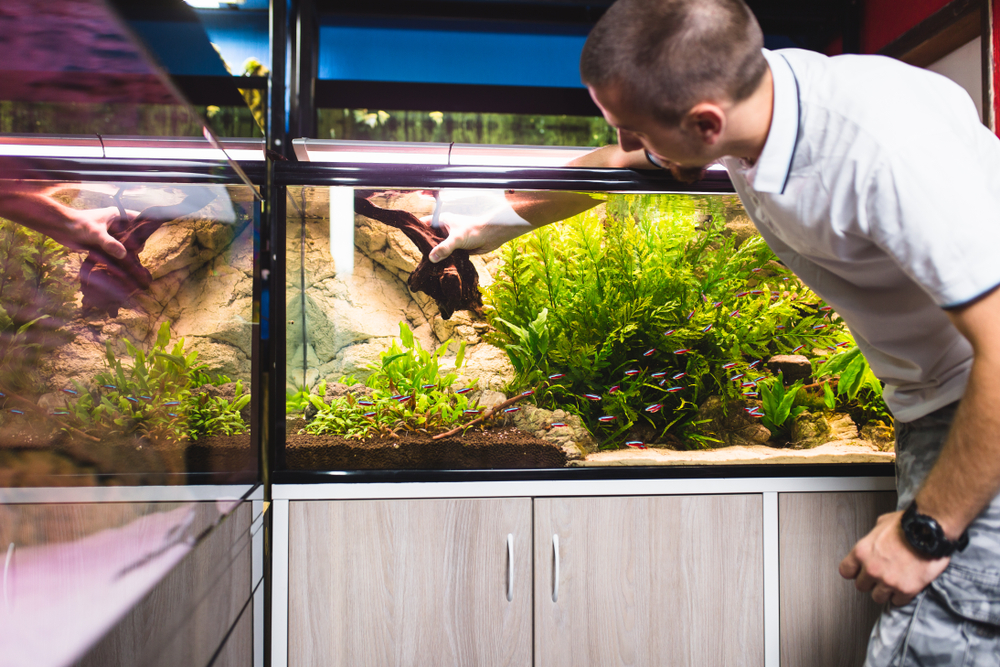
The size of the tank in which Betta fish live can also affect their lifespan. Betta fish require a minimum tank size of 2.5 gallons to thrive. A small tank can lead to poor water quality and stress, which can harm Betta fish and shorten their lifespan.
Betta Fish Care
Betta fish are popular pets due to their vibrant colors and long, flowing fins. However, they require proper care to thrive and live a long life. Here are some essential tips for betta fish care:
1. Tank Size and Maintenance
Betta fish need a tank that is at least 5 gallons in size, with a filter and heater to maintain a stable water temperature. The tank should also be kept clean with regular water changes, typically once a week.
During water changes, it is important to use a water conditioner to remove any harmful chemicals and maintain the pH balance of the water.
2. Feeding
Betta fish are carnivorous and need a diet that is high in protein. They can be fed a variety of foods, including pellets, flakes, and frozen or live foods such as brine shrimp or bloodworms.
It is important not to overfeed betta fish, as this can lead to health problems such as obesity and constipation.
3. Tank Environment
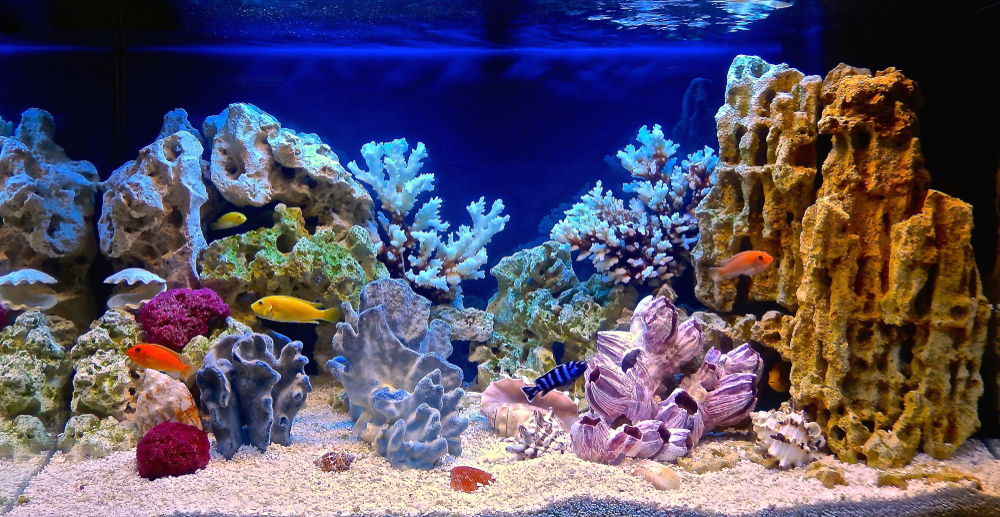
Betta fish are solitary creatures and should be kept alone in their tank. They also need plenty of places to hide and explore, such as plants and decorations. However, it is important to avoid sharp or rough objects that can damage their delicate fins.
4. Commitment
Betta fish can live up to 3 years with proper care, so it is important to make a commitment to their well-being. This includes regular maintenance of their tank and providing a healthy and stimulating environment for them to thrive in.
Betta Fish Diet
Betta fish are known for their hearty appetite and can eat a variety of foods. However, it is important to provide them with a balanced diet to ensure their optimal health and longevity.
One of the most common types of food for betta fish is pellets. Pellets are a convenient and easy way to provide bettas with a complete and balanced diet.
It is important to choose high-quality pellets that are specifically designed for betta fish. These pellets should contain a high amount of protein, as bettas are carnivorous fish.
In addition to pellets, bettas can also be fed flakes. Flakes are another convenient option, but it is important to choose high-quality flakes that are specifically designed for betta fish. These flakes should also contain a high amount of protein.
Live food is another option for bettas. Betta fish are known to enjoy live food such as brine shrimp, bloodworms, and daphnia. Live food can provide bettas with additional nutrition and can help to stimulate their natural predatory instincts.
Frozen food is another option for bettas. Frozen food such as brine shrimp and bloodworms can provide bettas with a nutritious and tasty meal. It is important to thaw the frozen food before feeding it to the betta.
Betta Fish Tank Requirements
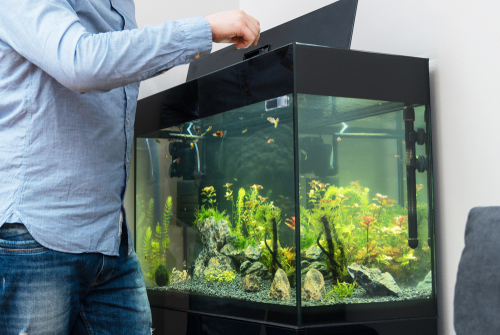
Betta fish, also known as Siamese fighting fish, require specific tank requirements to thrive in a home aquarium. Here are some important factors to consider when setting up a betta fish tank:
1. Tank Size
Betta fish are typically sold in small cups, leading many people to believe they can thrive in small spaces. However, bettas require a minimum of 5 gallons of water to live comfortably. A 10-gallon tank is recommended for optimal health and well-being.
2. Aquarium Heater
Betta fish are tropical fish and require water temperatures between 76-82°F (24-28°C). An aquarium heater is necessary to maintain a consistent and appropriate water temperature for your betta.
3. Plants
Live plants provide a natural environment for betta fish and can help reduce stress levels. They also help to filter the water and provide oxygen for the fish. Some recommended plants for betta fish tanks include java ferns, anubias, and moss balls.
4. Tank Setup
When setting up a betta fish tank, it is important to include hiding places and areas for the fish to rest. Betta fish prefer calm waters and may become stressed in tanks with strong currents. A filter is also recommended to maintain water quality.
Common Health Issues in Betta Fish
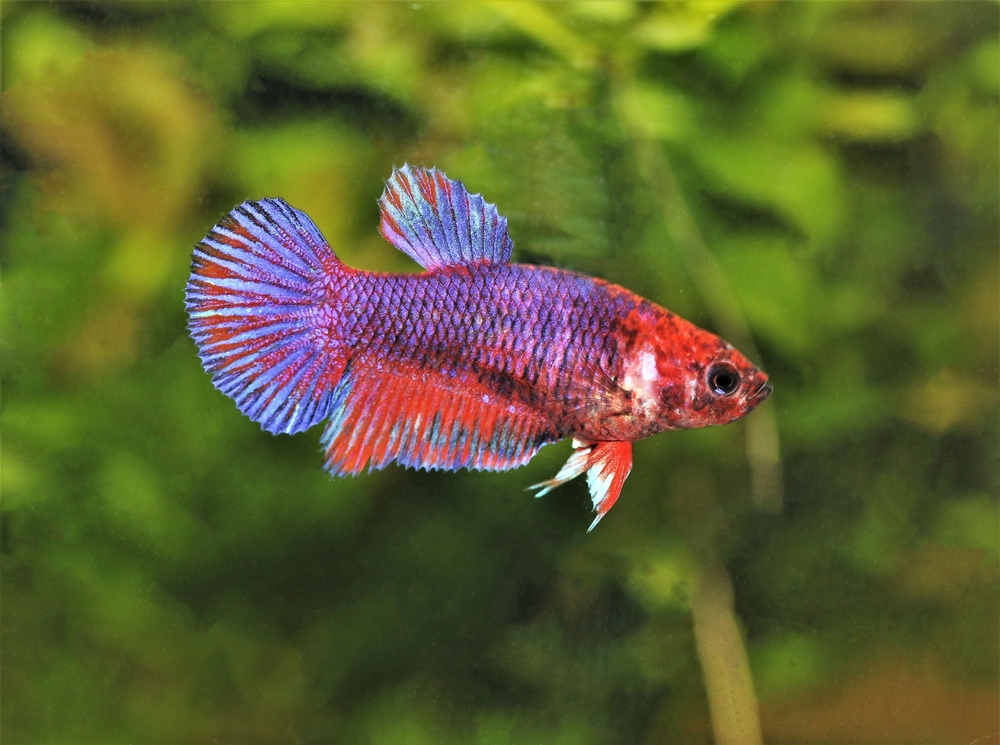
Betta fish are generally healthy and hardy fish, but they can still be susceptible to various health issues.
Here are some of the most common health problems that betta fish may experience:
1. Stress
Stress is one of the most common health issues in betta fish. Stress can be caused by a number of factors, including poor water quality, overfeeding, overcrowding, and inadequate filtration.
Symptoms of stress in betta fish include lethargy, loss of appetite, and a weakened immune system, which can make them more susceptible to other health issues.
2. Ammonia
Ammonia is a toxic substance that can build up in a fish tank and cause health problems for betta fish. Ammonia is produced by the breakdown of fish waste and uneaten food.
High levels of ammonia can cause fin rot, gill damage, and other health issues. It is important to maintain good water quality by performing regular water changes and using a high-quality filtration system.
3. Parasites
Betta fish can be affected by various parasites, including ich, velvet, and flukes. These parasites can cause a range of symptoms, including white spots on the fins and body, lethargy, and loss of appetite.
Treatment for parasites usually involves using medication specifically designed to kill the particular parasite.
4. Bacterial Infections
Bacterial infections are another common health issue in betta fish. These infections can be caused by a range of bacteria and can result in symptoms such as redness, swelling, and open sores. Treatment for bacterial infections usually involves using antibiotics.
5. Wounds
Betta fish can become injured by sharp objects in their tank or by fighting with other fish. Wounds can become infected and cause health problems if not treated promptly. Treatment for wounds usually involves keeping the water clean and using medication to prevent infection.
Choosing Tank Mates for Betta Fish
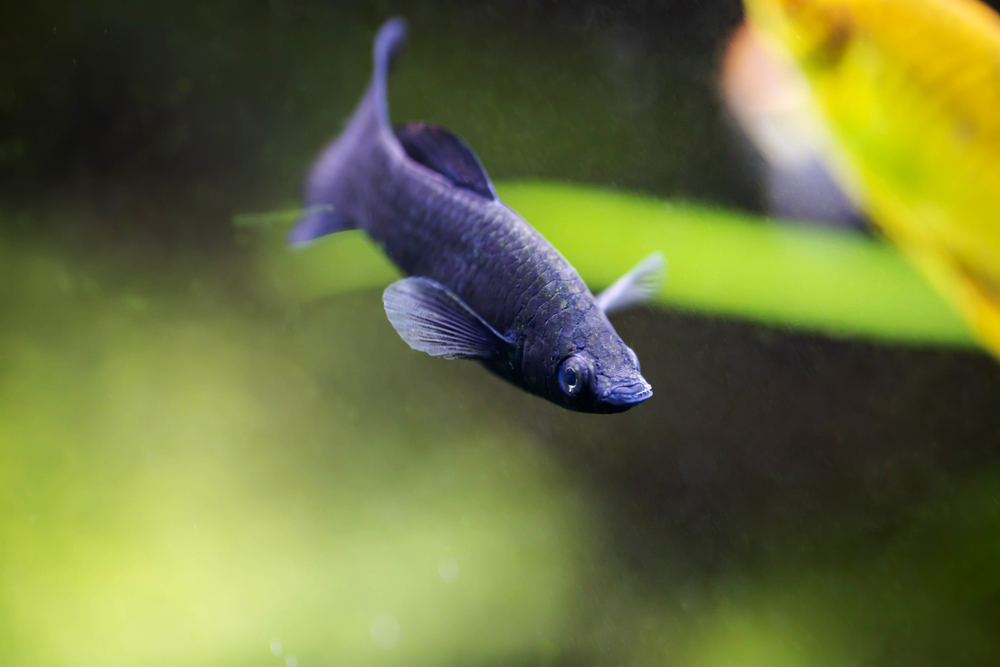
Betta fish, also known as Siamese fighting fish, are known for their aggressive behavior towards other fish. Therefore, choosing the right tank mates is crucial to ensure a peaceful environment for all fish in the tank.
When selecting tank mates for betta fish, it is important to consider the following factors:
Fish Size
Betta fish have long flowing fins that can easily be nipped by other fish. Therefore, it is important to choose tank mates that are similar in size to betta fish. This will help prevent any accidental injuries or aggression towards the betta fish.
Fish Temperament
Betta fish are known for their aggressive behavior, so it is important to choose tank mates that are peaceful and non-aggressive. Some good choices for tank mates include neon tetras, cory catfish, and guppies.
Fish Compatibility
It is important to choose tank mates that are compatible with betta fish. Some fish, such as angelfish and cichlids, can be aggressive towards betta fish and should be avoided.
It is also important to avoid any fish that have long flowing fins, as they may be mistaken for another betta fish and attacked.
Tank Size
When selecting tank mates for betta fish, it is important to consider the size of the tank. Betta fish require a minimum of 5 gallons of water per fish, and additional space is needed for tank mates. A larger tank will provide more space for all fish and help prevent any aggression.
Betta Fish in the Wild Vs Captivity
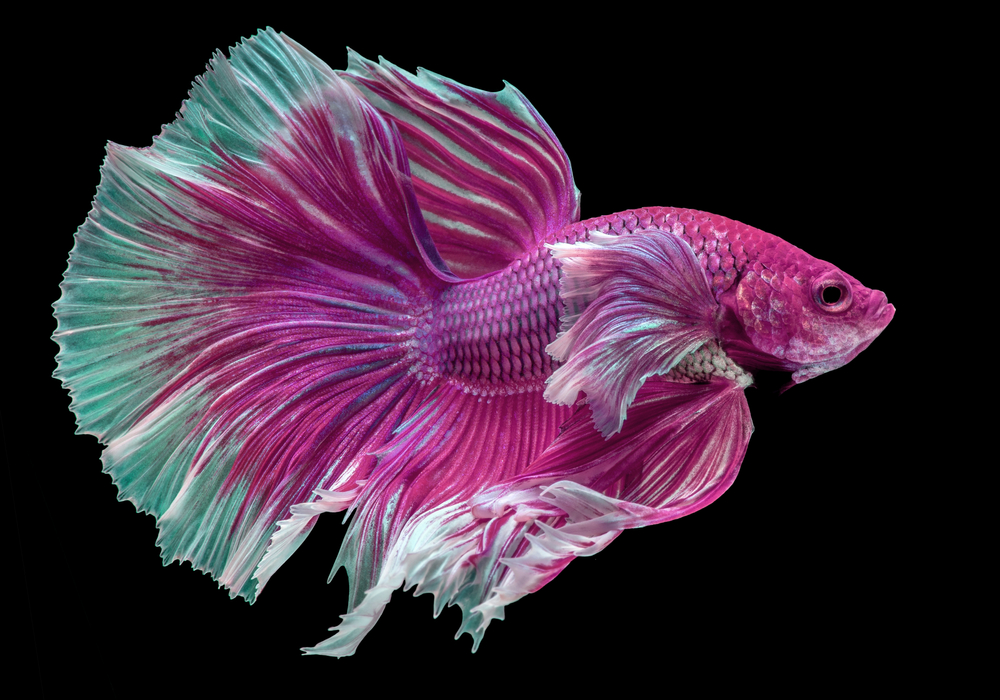
Betta fish are native to Southeast Asia, where they live in shallow, slow-moving waterways such as rice paddies, swamps, and streams. In the wild, bettas have a lifespan of about 2-3 years, although some have been known to live up to 5 years.
In captivity, bettas can live up to 5 years or more with proper care. However, their lifespan can be significantly shortened if they are not cared for properly. Captive bettas are typically kept in small tanks or bowls, which can lead to stress and a weakened immune system.
One major difference between wild and captive bettas is their water source. In the wild, bettas live in freshwater environments with a pH of around 7.0.
In captivity, bettas are often kept in distilled water or tap water that has been treated with chemicals to remove impurities. This can lead to health problems, as bettas require specific water conditions to thrive.
Another factor that can affect the lifespan of bettas is their metabolism. In the wild, bettas have to swim long distances to find food, which helps to keep their metabolism high.
In captivity, bettas may not have the opportunity to exercise as much, which can lead to a slower metabolism and health problems.
Frequently Asked Questions
What is the lifespan of a betta fish?
Betta fish typically live for 2-3 years in captivity. However, with proper care, they can live up to 5 years or more.
How can I extend the lifespan of my betta fish?
To extend the lifespan of your betta fish, you should provide them with a clean and spacious tank, a balanced diet, and a suitable environment. Regular water changes and proper filtration are also essential to keep your betta healthy.
What is the longest recorded lifespan of a betta fish?
The longest recorded lifespan of a betta fish is 9 years. However, this is rare and requires exceptional care and genetics.
Can betta fish live together, and for how long?
Betta fish are known for their aggression towards other bettas, and they should not be kept together in the same tank. However, they can coexist with other peaceful fish species in a community tank.
How much space do betta fish need to live a long life?
Betta fish need a minimum of 5 gallons of water to live a long and healthy life. However, the more space you can provide, the better.
What are some common causes of premature death in betta fish?
Some common causes of premature death in betta fish include poor water quality, overfeeding, stress, and disease. It is essential to monitor your betta’s health regularly and address any issues promptly.

Ian Sterling, founder of Fishlab.com, began his aquarium journey over 30 years ago, driven by a deep fascination for fish and their diverse personalities. His website, Fishlab.com, is dedicated to making fishkeeping accessible and enjoyable, offering beginner-friendly guidance, expert insights, and a community for aquarists to connect and share experiences.


